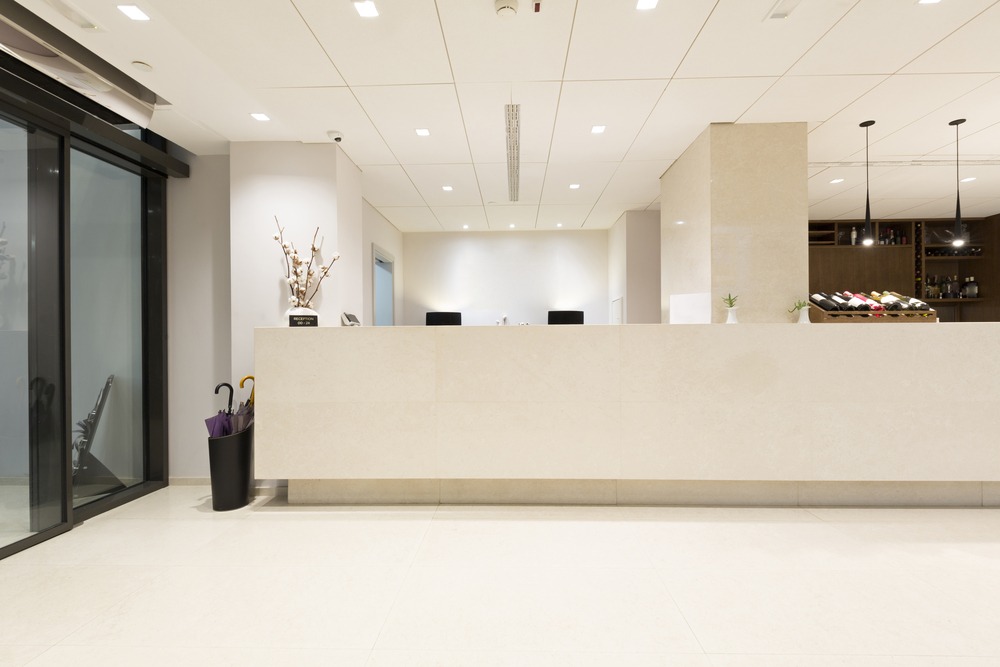Most hotel owners want to put sustainability at the top of the agenda, but with budget constraints and the ongoing effects of the pandemic putting pressure on the sector, it’s difficult to keep becoming greener a top priority.
Big changes, the likes of solar energy and heat pumps can feel like large projects to tackle. Unfortunately, because the target seems unreachable, often nothing happens in the meantime.
But when it comes to the environment, any change is positive. Far better to be ‘working towards’ than ‘doing it next week, month or year.’ That’s why having the knowledge of small changes that are easy to employ, can make a big difference.
Here are some of the measures that could help hoteliers take steps towards a more sustainable future. And the added bonus? Many save money and time too.
Swap paper towels for eco-dryers
Here at Airdri, we believe that a simple swap could cut costs and stop tonnes of paper towels entering landfill each year.
“Most people don’t realise that paper towels can’t be recycled for hygiene reasons, so every one that is used ends up in landfill. That can really add up for hotels and it’s not very economical either,” said Steve Whittall, operations director at Airdri.
“We estimate that a small hotel using paper towels only, would send around 484 kg of paper towels to landfill per year. The equivalent of 22 single mattresses. That rises to 5588kg for a large hotel, equal to 254 single mattresses.
Steve continued: “When investing in eco hand dryers, there are several factors that contribute to it being eco-friendly.
“It takes little energy to dry one pair of hands. However, in public buildings where washrooms are used daily for eight or more hours, these energy usages can mount up. Therefore, exceptional energy efficiency is paramount. At Airdri, our bespoke motors help achieve best-in-class energy efficiency, requiring only 200 watts of power to operate. The annual bill can be as little as £7 for 200 uses a day.”
“You also need to think about how long a hand dryer will last. The term ‘buy once, buy well’ has never been more important. Go for something that has been rigorously tested to ensure longevity.”
Switch Toiletries to a Refillable Model
Miniature toiletries might be a favoured guest experience when staying in a hotel, but if used then discarded the environmental impact can soon add up. ARRAN Sense of Scotland, which supplies luxury bath and shower gels, shampoos and conditioners to hotel partners has been working to address this issue.
Kevin Meechan, CEO at ARRAN Sense of Scotland said: “We are in the process of moving all our hotel partners to a refillable model across their properties, by supplying five-litre eco-friendly refills instead. This is reducing virgin plastic consumption across our business by up to 81%, there’s a huge impact we can make here.
“We’re also vetting and renewing partnerships with suppliers to ensure they have the same goal of working towards more sustainable working practices. Our principal bottle supplier for instance, is committed to sourcing materials that can be readily recycled and is advancing its programme to move towards 100% PCR (post-consumer recycled) material in all ARRAN Sense of Scotland bottles by 2022. We actively select our hotel partners who share our purpose to connect with nature and look after our natural environment.”
Digitalise access control
Digital ID is an access control and ID card specialist that supplies thousands of key cards to the hotel industry each year. To address the environmental impact of that, the brand has been working towards more sustainable practises.
“We only print and issue sustainable photo ID cards to our customers,” begins Adam Bennett, “we’re making a conscious effort to reduce our carbon footprint and help protect the planet from plastic pollution.
“As standard, our hotel key cards are made from 50% pre-consumer recycled PVC meaning hotels can work more sustainably without compromising quality or security. Each card has been made using recycled plastic materials that have been diverted from the waste stream, in essence giving the plastic a second life.
Eventually, the digitalisation of hotel key card systems could completely do away with plastic waste from access control in the sector. Moving to mobile credentials would mean that the person’s mobile phone would be used in the same way as a key card, with permission being managed from a central control panel in real time. It’s a more secure way of managing access control as permissions can be instantly revoked – no more lost key cards.
Ask guests to sleep on it… (or under it)
Aside from automating light and heat levels and asking guests to reuse towels (now standard practise), there are some soft furnishing swaps that can contribute to going greener. Claire Watkin, Managing Director at The Fine Bedding Company, which is working to become the first European bedding manufacturer to receive B Corp certification, explains more:
“Sustainability is at the heart of everything we do as a business, within our hospitality division and consumer facing products.
“The fibres in all duvets for our hotel partners are made using recycled post-consumer plastic bottles. We use an innovative practice which sterilises the plastic, before being processed and spun into fibres and fabrics which we use across our range. Our highly washable Spundown range and our new Vegan Down collection, designed to mimic real goose down whilst being entirely vegan, have been our most popular with our hotel partners.
“It’s actually a superior filling to most other fibres available, requiring less volume to create the same level of warmth. It’s incredibly light and comfortable, and we use a unique process that siliconizes the fibres, allowing them to slip around within the duvet and bounce back repeatedly which prevents the clumping you can often find on other duvets and pillows. It’s all round better for the environment, not only are they made with recycled goods, but they also last longer and stand up to repeated washing while retaining their shape.
“All duvets and pillows are made in our own eco-factory, which runs entirely off certified renewable energy and the facility is also zero waste; anything that is left over is turned into another product. For example, certain fibres that aren’t suitable for bedding we supply to factories that make teddy bears. Everything else is recycled – from cardboard to wastewater, which is filtered and sent to local farmland.”
Working with like-minded organisation
Working towards becoming more eco-friendly doesn’t have to a be painful process, more a gradual transition. It’s about making conscious decisions. When it comes to renewing supplies think about choosing companies that have the same ethical and environmental commitments as yours and it will mean you’re halfway towards your goal.


